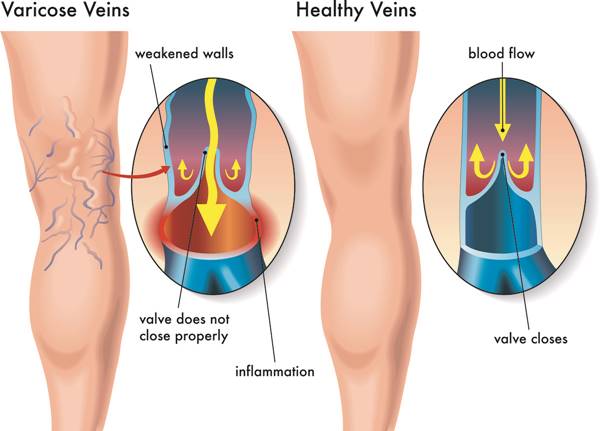In this article, we will delve into the topic of varicose veins and explore whether they should be a cause for concern. We will examine the causes and risk factors associated with this condition, as well as its potential complications. By understanding the nature of varicose veins and their impact on our well-being, we can make informed decisions about prevention and treatment options available.

The Potential Risks of Varicose Veins
While varicose veins are often considered a cosmetic concern, they can pose potential risks to one’s health. One of the most common complications is the development of blood clots, known as deep vein thrombosis (DVT). These clots can be dangerous if they dislodge and travel to vital organs, causing life-threatening conditions such as pulmonary embolism.
Moreover, varicose veins may lead to chronic venous insufficiency, where damaged valves in the veins impair blood flow back to the heart. This can result in leg swelling, skin ulcers, and an increased risk of infections.
Additionally, varicose veins may cause discomfort and pain that affects daily activities and quality of life.
Identifying the Symptoms of Varicose Veins
Varicose veins are swollen, twisted blood vessels that often appear as bluish or purplish bulges on the legs. Recognizing the symptoms of varicose veins can help individuals seek timely medical attention and understand the potential risks involved.
Common signs include aching or throbbing pain in the legs, especially after prolonged periods of standing or sitting.
Itchy or burning sensations around affected veins, as well as muscle cramps and swelling, may also be experienced.
In some cases, skin discoloration or ulcers near varicose veins might develop. Individuals may notice that their symptoms worsen with time and become more noticeable during warm weather.
When to Seek Medical Attention for Varicose Veins
While varicose veins are generally harmless and do not pose a significant health risk, there are certain situations in which seeking medical attention is recommended. If you experience symptoms such as severe pain, swelling, or redness in the affected area, it is essential to consult a healthcare professional.
Additionally, if your varicose veins start bleeding profusely or develop ulcers or open sores that do not heal within a reasonable timeframe, medical intervention is necessary.
Furthermore, if you notice sudden changes in the appearance of your varicose veins, such as increased size or discoloration, it is advisable to seek medical evaluation.
Remember that prompt medical attention can help identify any underlying conditions and ensure appropriate treatment for your varicose veins.
Treatment Options for Varicose Veins
When it comes to varicose veins, there are several treatment options available depending on the severity of the condition.
For mild cases, lifestyle changes such as regular exercise, elevating the legs, and wearing compression stockings can help alleviate symptoms and prevent further progression.
Sclerotherapy is another non-surgical option where a solution is injected into the affected veins, causing them to collapse and fade away over time.
Endovenous laser treatment (EVLT) uses laser energy to seal off the damaged veins, redirecting blood flow to healthier vessels.
In more severe cases, surgical procedures like vein stripping or ligation may be necessary to remove or tie off the affected veins.
Preventive Measures to Reduce the Risk of Complications
While varicose veins may not always be dangerous, they can lead to discomfort and potential complications. To reduce the risk of these complications, certain preventive measures can be taken.
Regular physical activity plays a crucial role in improving blood circulation and preventing varicose veins from worsening.
Maintaining a healthy weight can also alleviate pressure on the veins, reducing their appearance and potential complications.
Elevating the legs whenever possible helps in reducing swelling and relieving symptoms associated with varicose veins.
Avoiding prolonged periods of sitting or standing is important as it can worsen blood flow and contribute to vein enlargement.
Lastly, wearing compression stockings can provide necessary support to the veins, minimizing discomfort and lowering the risk of complications.
Managing And Living With Varicose Veins
In conclusion, while varicose veins may not pose an immediate threat to one’s health, they can still cause discomfort and affect a person’s quality of life. Therefore, it is crucial to manage and live with varicose veins effectively.
Implementing lifestyle changes such as regular exercise, maintaining a healthy weight, and avoiding prolonged periods of sitting or standing can help alleviate symptoms and prevent the progression of the condition.
Additionally, wearing compression stockings can provide relief by improving blood circulation.
Seeking medical advice from a healthcare professional is essential to explore treatment options that may include minimally invasive procedures or surgery if necessary. By adopting these strategies and staying proactive in managing varicose veins, individuals can reduce discomfort and enhance their overall well-being.